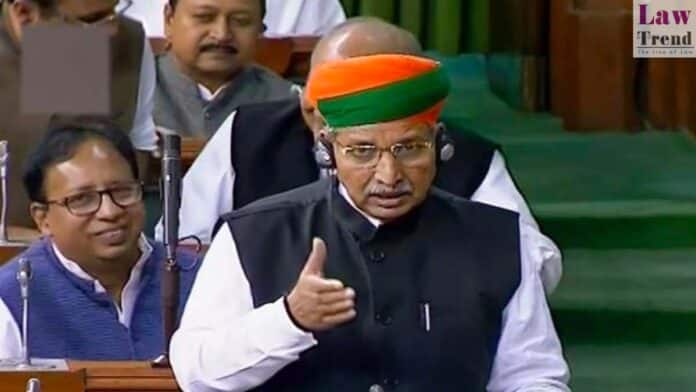The newly appointed Law Minister Arjun Ram Meghwal faces significant challenges in addressing vacancies in the higher judiciary, managing the backlog of pending cases, and finalizing the Memorandum of Procedure (MoP) for judicial appointments.
Meghwal, who has been retained as Law Minister in Narendra Modi’s Third Term as Minister of State for Law and Justice with independent charge was sworn in on Sunday.
One of the most pressing issues is the staggering number of pending cases across the Indian judiciary. Data shared with Parliament reveals that over five crore cases are pending across various courts, including lower courts, the 25 high courts, and the Supreme Court. A significant contributor to this backlog is the high number of vacancies in the judiciary.
As of June 1, the Supreme Court has two vacancies, while the high courts have 345 vacant posts out of a combined sanctioned strength of 1,114 judges. The apex court itself has a sanctioned strength of 34 judges. These vacancies exacerbate the delays in the judicial process, increasing the pendency of cases.
Finalizing the MoP is another critical issue that Meghwal must tackle. The MoP is a set of documents guiding the appointment, elevation, and transfer of high court and Supreme Court judges. In an attempt to replace the Collegium system of judicial appointments with a more transparent mechanism, the government introduced the Constitution (99th Amendment) Act, 2014, and the National Judicial Appointments Commission (NJAC) Act, 2014, which came into effect on April 13, 2015. These acts received near-unanimous support in Parliament.
However, the Supreme Court declared both acts unconstitutional and void in October 2015, reinstating the Collegium system. The court also mandated that the government finalize the MoP in consultation with the Chief Justice of India (CJI), who would make decisions based on the unanimous view of the Collegium, comprising the four senior-most judges of the Supreme Court.
Also Read
Despite ongoing discussions and negotiations between the government and the judiciary, the MoP’s finalization remains unresolved. This deadlock continues to hinder the appointment process, further contributing to the judiciary’s operational challenges.
As Meghwal steps into his role, addressing these issues will be crucial for ensuring the judiciary’s efficiency and effectiveness. The resolution of vacancies and the finalization of the MoP will play a pivotal role in reducing the pendency of cases and enhancing the transparency and accountability of judicial appointments.




